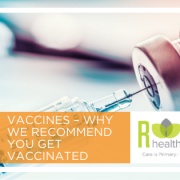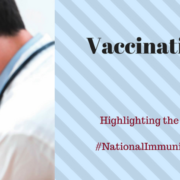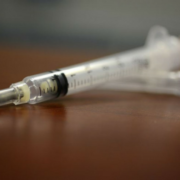VACCINES – WHAT EXACTLY THEY ARE AND WHY WE RECOMMEND YOU GET VACCINATED
Vaccines help to prevent disease, but there are a lot of misconceptions about them that keep people from getting immunized. Get the facts and learn more about vaccines with these common questions.
What is the purpose of a vaccine?
Vaccines reduce the risks of getting a disease by working WITH your body’s natural defenses to build protection.
How do vaccines work?
There are different kinds of vaccines that all work a little differently. Ultimately vaccines help protect you by imitating the infection in a way that never causes an illness but does cause your immune system to create antibodies. These antibodies will remember how to fight the disease if your body ever encounters it in the future. By getting a vaccine you develop immunity to that disease without having to get the disease first. For more information on the different kinds of vaccines there are you can visit: Understanding How Vaccines Work | CDC
What are the benefits of vaccines?
Ultimately vaccines protect you and your loved ones from getting sick with diseases that have caused serious illness, pain, disability and even death in the past. Many of us have never experienced cases of vaccine preventable diseases firsthand such as measles, polio and meningitis due to the vaccines that we receive.
Vaccines also help protect those around us who cannot get vaccinated such as newborns, those undergoing cancer treatments or who have a weakened immune system or have had a severe allergic reaction to a previous vaccine dose.
Are there any risks or side effects to getting vaccinated?
Most vaccines come with very little risks and most have very mild side effects, if any. Common side effects include low grade fever (a sign of your immune system working to build up antibodies) and soreness at the injection site.
Vaccines have NOT been linked to increases in health problems such as autism, asthma or auto-immune diseases. We do know that lack of vaccination can threaten a long and healthy life.
Rarely, an individual might have an allergic reaction to a vaccine. These allergic reactions are treatable and very rare.
What are the risks of not getting vaccinated?
The risks of not getting vaccinated is that you do not have protection against a disease that can cause great harm. All vaccine preventable diseases still circulate in the United States and in other places around the world and can cause outbreaks in communities, affecting those who do not have immunity to that disease. If you chose not to vaccinate yourself or your family, it is important to have a conversation with your primary care provider about what steps to take if there is an outbreak and what to watch for.
Are there other ingredients in vaccines and what do they do?
There are in fact other ingredients in vaccines that help provide protection, keep the vaccine safe and long lasting, prevent contamination and are used in the production of the vaccine. They are all used in safe amounts and at levels that are much lower than what already resides in our body naturally.
If you have more questions about the specific ingredients that make up a vaccine speak with your provider as they can discuss them in more detail with you and address your concerns.
Can a vaccine give someone the disease it’s supposed to prevent?
Vaccines cannot give someone the disease they are used to prevent. Vaccines contain the same germs that cause the disease, but those germs are inactivated or weakened to the point that they do not make you sick.







Leave a Reply
Want to join the discussion?Feel free to contribute!